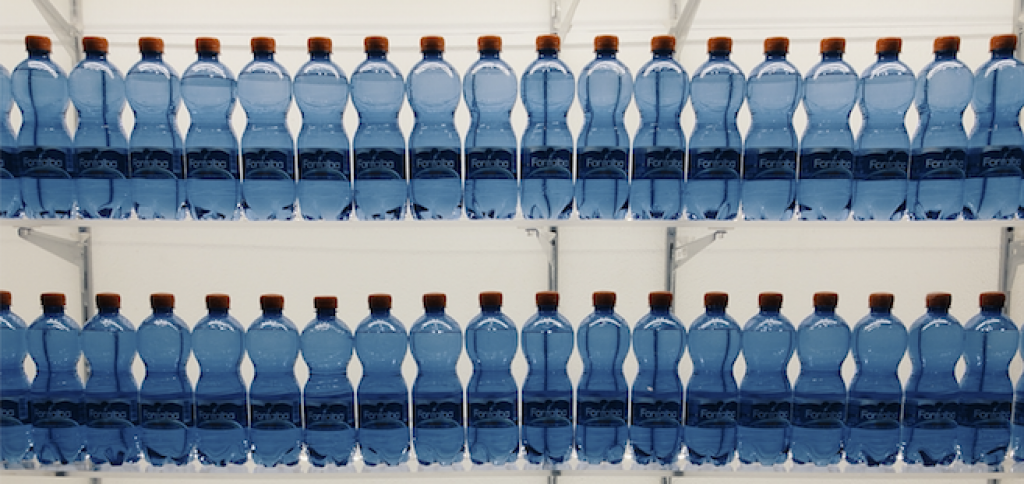Plastic, the sustainable packaging – innovative solutions unwrap a competitive boost

More and more consumers have been leaning harder toward sustainability in their purchasing decisions. The trend is unstoppable, and one that producers of nonalcoholic beverages and their suppliers will have to adapt to if they want to maintain or expand their market shares. One aspect of this business that consumers are paying more attention to is beverage packaging. And the nonalcoholic beverage industry has its sights set on plastic bottles. Innovative, sustainable solutions here can even lend companies a competitive edge.
An international team of researchers from the Ocean Cleanup Foundation recently determined that the Great Pacific Garbage Patch is much larger than previously assumed and filled with much more plastic. They believe nearly 80,000 tons are floating across 1.6 million square meters, an expanse roughly 4.5 times the size of Germany.
Facts like these have shocked consumers. And they’re also prompting people to ask more questions about nonalcoholic beverages that come in plastic bottles. Now it’s time to offset these alarming negative developments with some news about positive achievements. And there are plenty to talk about! Researchers, the supplier industry and makers of nonalcoholic beverages have come up with some encouraging results.
Advances made by researchers
One such researcher is Dr. Stephanie Stute, a professor in the Department of Process Engineering at the Nuremberg University of Technology, who is exploring the area of biodegradable plastics. Her project is called the “bio-based production of the biodegradable organic plastic polyhydroxybutyrate.” Her project focuses on developing a continuous and, thus, particularly efficient production process for this bio-plastic. “Polyhydroxybutyrate is a colorless polyester and is generally considered a promising alternative to petrochemical polymers,” she says. “Until now, the manufacturing costs for this bio-plastic have been prohibitive, which is why it’s not being used on a larger scale in industry.”
A team in the Department of Conversion Technologies at the University of Hohenheim recently opened a new bio-refinery technical center. They are further investigating the idea of producing plastics from renewable resources, moving laboratory experiments into the testing phase. Chinese silver grass, chicory beets and stale baked goods are being examined here as raw materials that could possibly be used to produce hydroxymethylfurfural, which goes into making things like polyethylenfuranoate beverage bottles.
The “lightweight story” continues
A study by the AGVU recently confirmed that huge amounts of resources could be conserved by increasing the material efficiency of packaging. It is a finding that also affects the producers of nonalcoholic beverages: Had technology from 1991 been used to produce plastic packaging in Germany in 2013 instead of the state-of-the-art packaging that was actually employed, producers would have needed to use 955,000 more tons of plastic to do the job. KHS is demonstrating that this effort continues to move forward as part of its Bottles & Shapes Program with newly developed lightweight PET bottles. In this work, the company has created a 0.5 liter PET bottle with screw cap for heavily carbonated beverages that weighs just 9.9 grams and a 0.5 liter PET bottle for noncarbonated water that weights only 5 grams.
Recycled PET (rPET) for new bottles
There have also been efforts to use recycled PET for new beverage bottles. E-proplast, which develops and produces PET bottles used in particular for hot filling, recently presented Eco, a new bottle series that is made of 50 percent rPET (recycled PET).
Alpla, an Austrian producer of plastic packaging, has pledged as part of the Global Commitment of the New Plastics Economy to make all of its packaging solutions fully recyclable by 2025. By this time, the company wants to increase the volume of processed post-consumer recycled materials to 25 percent of total material used.
Pioneers in plastics
Bottlers of alcoholic beverages have also recognized the signs of the times. One very interesting and innovative approach has been developed by a Berlin start-up called share. It is the first beverage producer in Germany to sell its water in PET bottles made completely from recycled materials. In 2019, the company plans to distribute about 1 million bottles. In doing so, it will eliminate about 200 tons of plastic trash. “We could save a full 300,000 tons of plastic trash if all German producers of nonalcoholic beverages would switch to these bottles,” said Sebastian Stricker, the founder of share. It is an ambitious goal that consumers would certainly toast.
The Austrian beverage maker Vöslauer has one particularly sustainable practice for plastics. The company recently set new standards in Austria by using a 0.5 liter PET bottle made completely from rPET. “Our major goal for 2025 is to produce all Vöslauer PET bottles from 100 percent rPET,” said Birgit Aichinger, the Managing Director of Vöslauer.
PepsiCo’s plans, on the other hand, look rather meek in comparison: By 2030, the company intends to have increased the amount of recycled plastic in the bottles it uses in the European Union by 50 percent. Even if the interim goal of 45 percent recycled material is scheduled to be reached by 2025.
Small “straw steps” help, too
Even small steps promoting sustainability contribute to the greater cause. The Hamburg-based company fritz-kulturgüter represents one such step. As a major opponent of plastic straws, it has teamed up with the Berlin-based start-up Halm (German for “straw”) to produce a limited edition of reusable, easy-to-clean, dishwasher-safe drinking straws for selected restaurant partners. It is a campaign that fritz has undertaken to underscore its commitment to sustainability and environmental protection. “With our straws, we hope to generate environmental momentum and raise our partners’ awareness levels about the need to avoid the use of plastic,” said Mirco Wolf Wiegert, the founder and Managing Director of fritz-kulturgüter.
The Finnish companies Stora Enso and Sulapac have also zeroed in on the issue of straws. They recently presented a sustainable straw made with a new bio-composite material that consists of wood fibers and natural binders. These kinds of straws are biodegradable in industrial composting facilities and marine environments. Commercial production of the new straws is expected to begin in the second quarter of 2019.
Do good and talk about it
Generally speaking, the makers of nonalcoholic beverages and the supplier industry are well-advised to be as sustainable as possible in the area of packaging and to systematically inform consumers about their efforts. The motto could be: Do good and talk about it. In the end, this involves the active polishing of the industry’s image – and, as a rule, this generally has an effect on sales volume and revenue, too. We will have to wait and see which changes will be caused by the EU’s recent ban on single-use plastic items.
